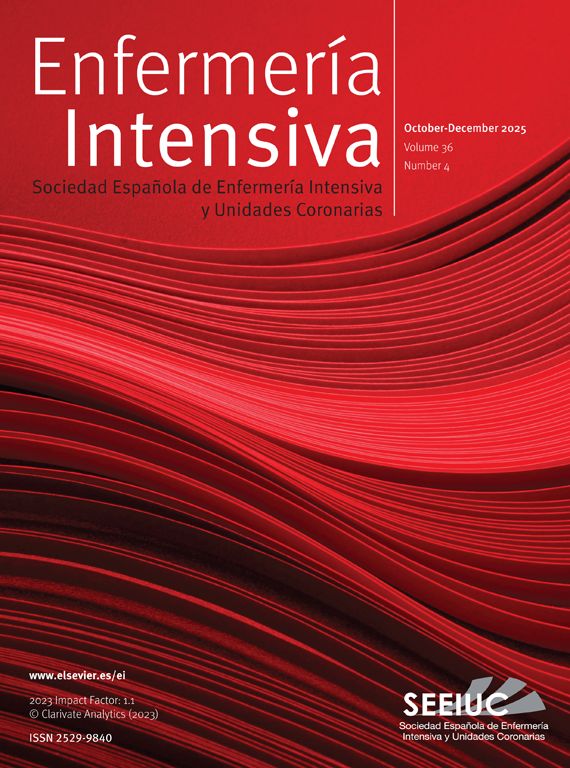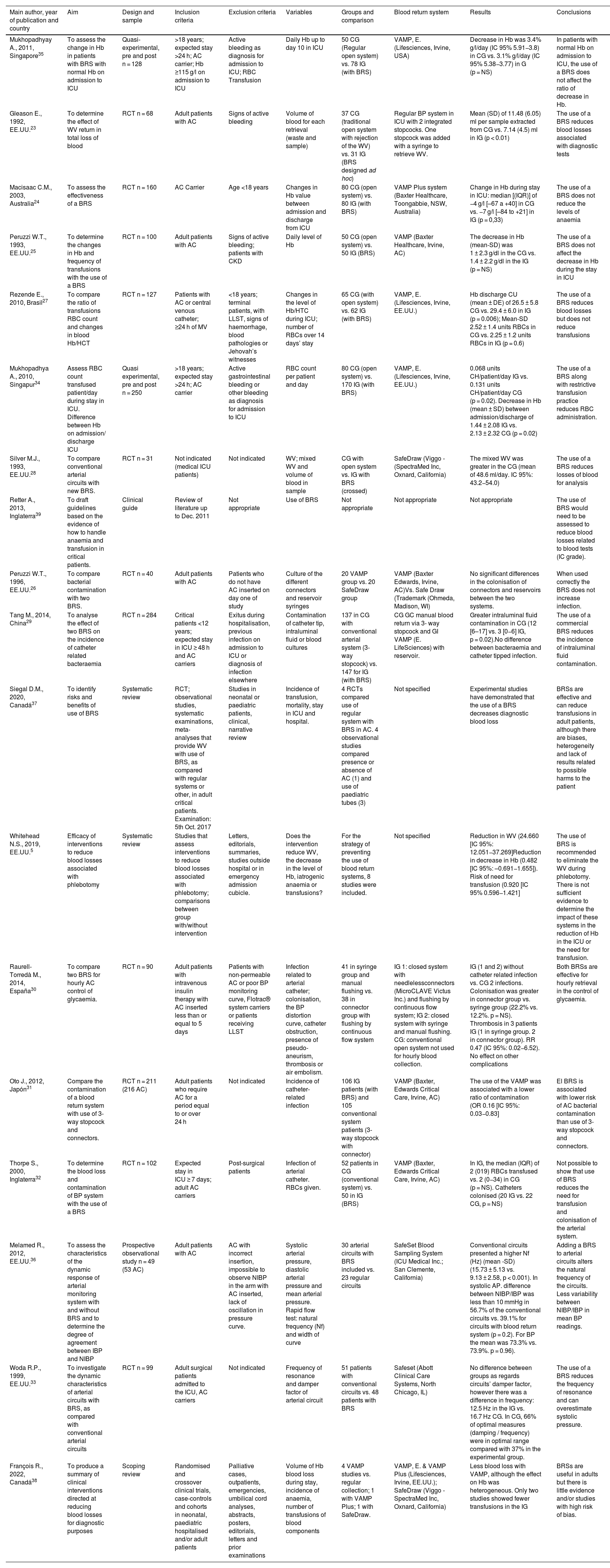Anemia associated with blood extraction for diagnostic purposes is a highly prevalent entity in intensive care units (ICU) for adults. The evidence recommends its prevention through different strategies, among which we can find the use of closed blood sampling systems (CBSS). Different experimental studies support the use of these devices.
ObjectiveTo identify knowledge gaps regarding the effectiveness of CBSS in ICU patients.
MethodsScoping review with search in PubMed, CINAHL, Embase, Cochrane Library and Joanna Briggs Institute databases, between September-2021 and September-2022. No time, language, or other limits were applied to ensure the recovery of all relevant studies. Gray literature sources: DART-Europe, OpenGrey and Google Scholar. Two researchers independently reviewed titles and abstracts and assessed full texts against the inclusion criteria. The following data was extracted for each study: design and sample, inclusion and exclusion criteria, variables, type of CBSS, results and conclusions.
Results18 articles were included in the final review, 11 clinical trials (RCTs) published between 1992 and 2014. Three systematic reviews were found, but they only analyzed the effect of CBSS in reducing blood loss, hemoglobin stabilization, and the need for transfusion. Five of the RCTs analyzed the risk of infection, one catheter complications, and two alterations in blood pressure readings.
ConclusionsThe use of CBSS is recommended to reduce blood loss in ICUs. However, there are discrepancies about their ability to prevent anemia and/or the need for blood transfusion. Its use does not increase catheter-related infection rates or alter the measurement of mean arterial pressure.
La anemia asociada a la extracción sanguínea con fines diagnósticos es una entidad muy prevalente en las unidades de cuidados intensivos (UCI) de adultos. La evidencia recomienda su prevención mediante diferentes estrategias, entre las que se encuentra el uso de sistemas de retorno de sangre (SRS). Diferentes estudios experimentales avalan el uso de estos dispositivos.
ObjetivoIdentificar lagunas de conocimiento en cuanto a la efectividad de los sistemas de retorno de sangre en pacientes de UCI.
MetodologíaRevisión de alcance con búsqueda en las bases de datos PubMed, CINAHL, Embase, Biblioteca Cochrane y Joanna Briggs Institute, entre septiembre-2021 y septiembre-2022. No se aplicaron límites temporales, de idioma, o de otro tipo, para garantizar la recuperación de todos los estudios pertinentes. Fuentes de literatura gris: DART-Europe, OpenGrey y Google Académico. Dos investigadores revisaron de forma independiente los títulos y resúmenes y evaluaron los textos completos según los criterios de inclusión. Para cada estudio se extrajeron los siguientes datos: diseño y muestra, criterios inclusión y exclusión, variables, tipo de SRS, resultados y conclusiones.
ResultadosSe incluyeron 18 artículos en la revisión final, 11 ensayos clínicos (ECA) publicados entre 1992 y 2014. Las tres revisiones sistemáticas encontradas solo analizaban el efecto de los SRS en la disminución de la pérdida hemática, estabilización de la hemoglobina y necesidad de transfusión. Cinco de los ECA analizaban el riesgo de infección, uno complicaciones del catéter y dos alteraciones en la lectura de presión arterial.
ConclusionesEl uso de los SRS es recomendado para la disminución de la pérdida hemática en las UCI. Sin embargo, existen discrepancias sobre su capacidad para prevenir la anemia y/o la necesidad de transfusión sanguínea. Su uso no incrementa las tasas de infección relacionada con catéter ni altera la medición de la presión arterial media.
Article
Diríjase al área de socios de la web de la SEEIUC, (https://seeiuc.org/mi-cuenta/iniciar-sesion/) y autentifíquese.









